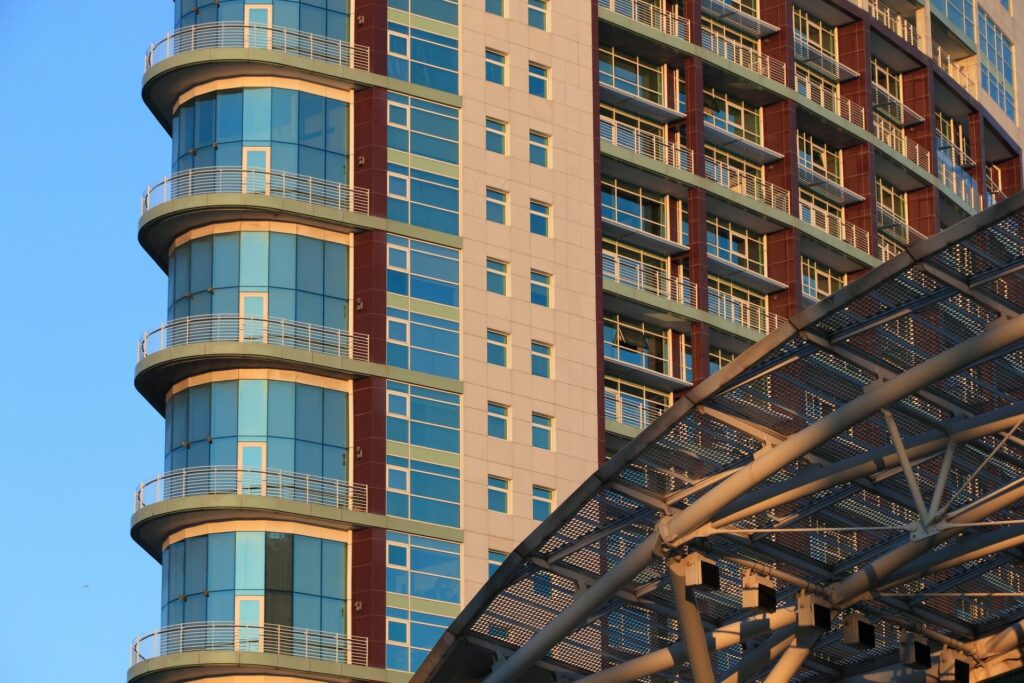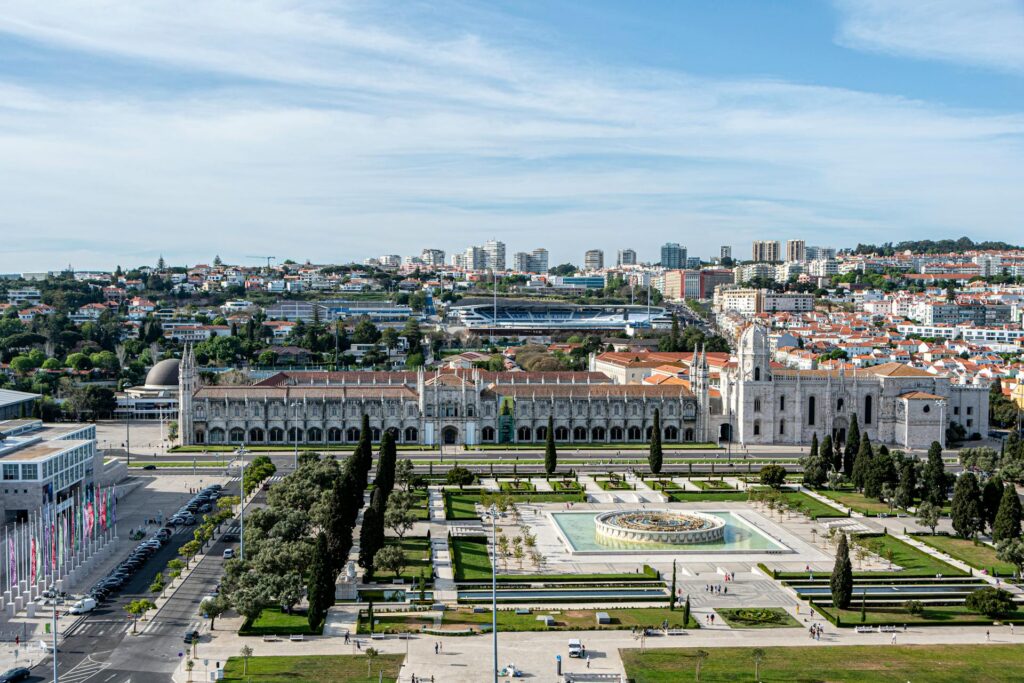Buying property in Portugal is much more than a financial investment; it’s an investment in a lifestyle many dream of but few realize. But where does one begin in pursuing property ownership in Portugal? Well, it starts with understanding the basics—from the property ownership types and navigating tax implications to securing your investment with the right insurance.
Embracing the Lifestyle and Cultural Riches
Buying property in Portugal offers a wealth of opportunities to immerse yourself in a culture known for its hospitality and vibrant traditions. As a testament to their welcoming nature, they’ve made easier pathways to residency and long-term living.
The Golden Visa Program: A Golden Opportunity
The Golden Visa program’s attractiveness greatly diminished in 2024 when the government delisted Portugal real estate as a qualified investment medium. However, investment opportunities like fund subscriptions to Portugal-based venture capitals or starting a business in the country are still appealing. Donating at least €200,000 to preserve national heritage can also make buying property in Portugal pretty enticing.
Digital Nomad Visa (Portugal D8 Visa)
Portugal’s Digital Nomad Visa, officially known as the D8 visa, is a major step forward for remote workers. It allows them to enjoy the delights of Portuguese life while continuing their careers with companies outside of Portugal. This innovative visa program highlights Portugal’s welcoming approach to individuals with location-independent work. It offers them the opportunity to live and work in Portugal, as long as their income comes from abroad.
While Digital Nomads usually go for rental properties to keep monthly living costs down, the real estate markets in Portugal might nudge some remote workers to look into buying property in Portugal, whether they’re looking for the ideal home or a sound investment.
Our residency and migration partner, Portugal Residency Advisors®, provides comprehensive information on the visa application process and securing a residence permit. They also offer valuable insights for expats considering a move to Portugal.

Understanding Types of Property Ownership in Portugal
For people buying property in Portugal, some look for a permanent home to settle down in, others seek a vacation getaway, and yet others might be eyeing an investment opportunity. The variety of property ownership in Portugal caters to this diverse array of needs, ensuring that there’s something for everyone, no matter what your plans or dreams might involve.
Freehold Ownership (Propriedade Plena)
Think of freehold ownership as the full package—you own the building and the land it stands on, with no strings attached. This option offers the most freedom and control, allowing you to truly make a space your own.
One of the primary benefits of buying property in Portugal through freehold ownership for non-residents is the possibility of a significant return on investment. The Portuguese real estate market has seen consistent growth, and properties tend to appreciate over time, making them a wise investment choice.
Additionally, freehold owners in Portugal have the liberty to modify or develop their property as they see fit, respecting local regulations. This freedom allows for personalising living spaces or enhancing property value through renovations and additions. Property owners can also rent out their properties, providing an opportunity for passive income. Given the country’s robust tourism and the popularity of short-term rental platforms, this can be a lucrative benefit.
Buying property in Portugal is relatively streamlined for foreigners, with no major restrictions on foreign property ownership. It’s also important to note that freehold property owners in Portugal face clear and straightforward property taxes (IMI), generally considered reasonable and manageable compared to other European countries.
This ease of acquisition, combined with the country’s welcoming culture, pleasant climate, and high quality of life, makes buying property in Portugal even more enticing.
Leasehold Ownership (Direito de Superfície)
Buying property in Portugal in a leasehold setup, means you own a property for a certain period. While not as common as freehold ownership, it’s an option that might suit you if you’re looking for less permanency or a smaller initial capital outlay. It’s a bit like a long-term lease, with the benefit of making the space yours without owning it forever.
Typically, leasehold properties come with a less daunting price tag than their freehold counterparts. This can make for a less intensive capital investment, freeing up funds for living expenses, travel, or even adventures in Portugal.
Because of the well-defined time frame, a leasehold property can align with other transient factors in your life—like a job contract or educational pursuits. It’s like committing to the Portuguese lifestyle, with the freedom to adapt as life unfolds.
The only downside is that you may have to pay the freeholder ground rent and service charges. However, with the benefits of a smaller initial investment and flexible terms, buying property in Portugal with a leasehold might be a bit more attainable for many non-residents.

Fractional Ownership
In fractional ownership, you own equity or part of the property and have the right to use it for a certain period each year. This approach makes buying property in Portugal accessible and might be just the right fit if you’re looking for a holiday escape without full-time property commitments.
This co-ownership concept allows for a more affordable entry into the Portuguese property market. It is mostly used for vacation homes and often comes with the perk of being fully furnished and managed. This simplifies the ownership experience and removes the hassle commonly associated with property management.
If you’re worried about the logistics of sharing ownership, it’s important to remember that it comes with legally binding agreements before transacting with your co-owner. Here are some things you might expect from a fractional ownership agreement:
- Structured Agreement: Buying property in Portugal through fractional ownership starts with a clear, legal agreement. This document lays out ownership percentages, usage schedules, maintenance cost-sharing methods, and rules for selling shares.
- Managing Use and Maintenance: Modern solutions have streamlined the management of fractional properties. A rotational calendar ensures each owner enjoys their home during different seasons, making every stay unique. A property management company often handles maintenance, making it hassle-free for you.
- Dispute Resolution: Open communication and the initial agreement are key to preventing and resolving any disputes. Should disagreements arise, your agreement will include procedures for mediation, maintaining peace and cooperation among owners.
- Financials and Expenses: All co-owners contribute to the property’s expenses, proportionate to their ownership share. This includes maintenance, utilities, property taxes, and management fees.
Horizontal Property (Propriedade Horizontal)
Propriedade Horizontal is a common form of ownership in cities, where you own an apartment within a building. Along with your private space, you share common areas with other residents. As opposed to fractional ownership, the only equity you co-own with other people is for certain shared areas, not the entire infrastructure. It combines the independence of having your own space with the community feeling of shared spaces.
Horizontal ownership lets you enjoy the following benefits:
- Shared Amenities and Resources: One of the primary advantages of horizontal ownership is the ability to share amenities and resources. This can include things like communal gardens, pools, and parking areas. Such shared amenities can enhance the living or working environment without the burden of individual owners having to bear the full costs of these facilities.
- Maintenance and Upkeep: When buying property in Portugal under a horizontal property regime, the responsibility for maintaining common areas and essential services is typically handled collectively. This is often managed through a homeowners’ association (HOA) or a similar body. This collective approach can lead to more efficient maintenance and a higher standard of care and upkeep, as costs and responsibilities are shared among all owners.
- Legal Framework for Dispute Resolution: Horizontal ownership establishes a clear legal framework for managing and resolving disputes among property owners. This can cover everything from noise complaints to the shared use of facilities, providing a structured approach to dealing with issues that may arise among neighbors.
However, buying property in Portugal using the horizontal ownership regime is not without its drawbacks. Perhaps the most significant disadvantage is the potential loss of individual control over certain aspects of property management. Owners are often required to adhere to the rules and decisions made by the homeowners’ association. These regulations can include restrictions on property modifications, usage, and even the colour of your front door.

Legal Requirements and Documentation: Your Foundation
First things first: buying property in Portugal requires a Personal Fiscal Number (Número de Identificação Fiscal, NIF). Consider it your key to unlock the door to property ownership in Portugal. It’s straightforward to obtain, either in person at a Finanças office or through a local representative or lawyer.
Next up, it’s crucial to ensure that any property you’re considering is registered correctly. For this, you’ll delve into the Land Registry (Conservatória do Registo Predial), which holds essential information about the property’s history and legal status. Here, you’re ensuring there are no hidden surprises. If you’re looking to
As for documentation, brace yourself for a bit of paperwork, but keep your eye on the prize. Essential documents include the Property Tax Document (Caderneta Predial), demonstrating the property’s fiscal situation, and the Housing License (Licença de Habitação), confirming the property’s habitability.
Financing Your Property Acquistion
While paying cash is always the preferred method, obtaining a mortgage as a foreign buyer is also possible. Many have successfully pursued this option when buying property in Portugal.
Eligibility Of Buying a Property in Portugal
Almost everyone is welcome at the table. Whether you’re an EU citizen or hail from further afield, the doors to financing your property in Portugal are open. Portuguese banks are open to working with non-residents, offering terms that are competitive and fair. You will need to prove financial stability, of course.
Mortgage Document Requirements
Here’s where the paperwork begins—but don’t worry, it’s nothing you can’t handle.
- Passport or ID Card: To prove you are who you say you are.
- Tax Identification Number (NIF): Essential for almost everything in Portugal.
- Proof of income: Recent pay slips, tax returns, and anything else to show you have a stable income.
- Proof of address and credit history: To assess your financial reliability.
- Bank statements: Usually, for the last six months.
Thanks to modern technology and some banks offering digital onboarding processes, much of this can be done online or with the help of a local representative.
Types of Mortgages: Buying a Property in Portugal
- Fixed-rate: Your interest rate stays the same throughout the term. Stability is the name of the game here. Rates hover around 1.5% to 2.5%. It’s essentially locking in your monthly payment, so there are no surprises.
- Variable rate: Linked to the Euribor, your rate can change, meaning your monthly payments might fluctuate. Rates typically start just under 1%, but remember these can go up or down.
Additional Costs Of Buying a Property in Portugal
It’s important to remember the home-buying journey comes with some travel companions: additional costs. These include legal fees, property transfer tax (IMT), stamp duty, and notary and registration fees. Typically, you can expect these to add about 7-10% on top of your property purchase price. Budgeting for these extras will ensure you’re not caught off guard.

Buying a Property in Portugal: Registration and Taxes
Taxes related to buying property in Portugal can be confusing for foreigners. However, it’s important to understand it so you don’t end up paying more than necessary. You’ll first need to register your property with the local council (Câmara Municipal). This will cost around €100 and must be done within 30 days of purchase.
Annual Property Taxes (Imposto Municipal sobre Imóveis)
IMI is an annual tax levied on property ownership in Portugal, payable by the property’s owner as of December 31 of the tax year. This tax applies to both urban and rural properties. Whether you’ve bought a sleek apartment in Lisbon or a charming villa in the Algarve, IMI is an integral part of your relationship with your new home.
The amount you’ll pay for IMI is calculated based on the Tax Asset Value or the Valor Patrimonial Tributário (VPT) of your property, which the Portuguese tax authorities determine. The VPT is the property’s fiscal value based on location, size, quality, and age.
The applicable IMI rate varies from 0.3% to 0.45% for urban properties and is around 0.8% for rural properties. The specific rate you’ll pay can depend on the local municipality where your property is located, as they have some leeway to adjust rates within these parameters.
Additional Annual Wealth Property Tax (AIMI)
Not everyone will have to pay AIMI. This tax is only applicable to individuals and companies that own properties with a combined VPT above certain thresholds. Here’s a quick breakdown:
Individuals and Undivided Estates: For those holding properties with a VPT exceeding €600,000, AIMI is payable at rates starting from 0.7%. If you and your spouse opt for joint taxation and own properties under both your names, the threshold doubles to €1,200,000 before AIMI applies.
Companies: Corporate entities face AIMI on the entire value of their property holdings (used for personal ends or accommodations of shareholders, members of bodies, or managers) with a flat rate of 0.4%. However, if properties are held by companies located in tax havens, the rate jumps to 7.5%.
How Much Is It?
- 7% on properties held by individuals above €600,000 (or €1,200,000 for married couples who opt for joint taxation).
- 1% on the portion of property value exceeding €1 million.
- 4% for properties owned by companies.
- 5% for properties owned by entities residing in tax havens.
Property Insurance in Portugal
While the sunny days and vibrant culture paint a dreamy picture, life can be unpredictable anywhere in the world. This is where property insurance steps in—not just as a safety measure but as a peace of mind provider, ensuring that your serene life remains undisturbed.
Property insurance is your financial safety net, helping you handle losses without significant financial strain. It covers repair costs and replacements and even compensates for damages or losses, allowing you to restore your home and belongings without undue stress. More than just a policy, it’s the reassurance that your Portuguese home remains a sanctuary, no matter what life throws your way.
Overview of Property Insurance Types in Portugal
Property insurance in Portugal comes in various forms, each designed to address different aspects of homeownership:
- Fire Insurance (Seguro de Incêndio) – Protects your property if a fire occurs. It’s your financial backup, ensuring that in the rare case something goes wrong, you won’t face the aftermath alone. This type of insurance typically covers repairs or rebuilds.
- Multi-Risk Insurance (Seguro Multirriscos) – Covers a wide range of incidents, not just fire. This includes theft, water damage, natural disasters, and much more. Opting for Multi-Risk Insurance means you’re preparing for the unexpected, allowing you to enjoy your new life in Portugal worry-free.
- Holiday Home Insurance – Specifically designed for properties that you might not live in year-round but are still precious to you. It typically covers property damage, emergency travel allowance, and temporary accommodations.
- Home Contents Insurance – Coverage just for the personal belongings that make your house feel like home—your furniture, gadgets, clothing, and even those precious keepsakes.

Find Your Dream Home with Us
Portugal Investment Properties is your gateway to smart real estate investments in Portugal, offering savvy investors access to an exclusive collection of carefully curated properties.
Whether you’re searching for your dream home or a prime investment opportunity in Portugal’s prestigious market, we provide more than just listings – experience a personalized journey tailored to your aspirations.
Begin your journey to discover your perfect Portuguese retreat. Contact us today!
Looking to Invest in Portugal?
Explore our newest listings below!
Frequently Asked Questions About Portugal Property Ownership
How does the Golden Visa program impact property buyers after the 2024 changes?
As of 2024, buying property in Portugal no longer qualifies for the Golden Visa. However, buyers can still explore other options like investing in venture capital funds, starting a business, or heritage preservation donations to gain residency in Portugal.
Can I rent out my property to generate income?
Portugal has a robust short-term rental market, particularly in popular tourist areas. You can rent out your property to earn passive income, though it’s essential to follow local regulations and register your property with the municipality for rental purposes.
Are there restrictions on foreign buyers Buying a Property in Portugal?
No, there are no restrictions for foreign buyers in Portugal. Non-residents are welcome to pursue buying property in Portugal and even apply for mortgages from Portuguese banks.
What are the taxes involved when purchasing property in Portugal?
When buying property in Portugal, you’ll need to pay taxes such as IMT (Property Transfer Tax), stamp duty, and annual IMI (Municipal Property Tax). These taxes vary based on the property’s value and location.
Can I buy property in Portugal as a non-EU citizen?
Yes, non-EU citizens can purchase property in Portugal without restrictions. Owning property can also make you eligible for long-term residency visas, depending on the investment structure.
Do I need a Portuguese bank account to buy property?
While not mandatory, having a Portuguese bank account is highly recommended as it simplifies transactions, especially for paying taxes, legal fees, and ongoing utility costs associated with the property.
What legal steps should I take when buying property in Portugal?
It’s essential to hire a lawyer who will conduct due diligence, verify property ownership, check for outstanding debts, and ensure all legal documents are in order before you sign the promissory contract and finalize the deed.
Can I get a mortgage to buy property in Portugal?
Yes, Portuguese banks offer mortgages to foreign buyers, typically covering up to 70% of the property’s value. Loan approval depends on your financial profile and creditworthiness.
What is the process for registering property in Portugal?
After purchasing, your property must be registered at the Land Registry Office (Conservatória do Registo Predial) and the Tax Office (Autoridade Tributária). These steps confirm ownership and ensure compliance with tax obligations.
Can I buy property remotely without being in Portugal?
Yes, it is possible to purchase property remotely in Portugal. By granting a power of attorney to a trusted lawyer or representative, they can handle all legal and administrative steps on your behalf.
